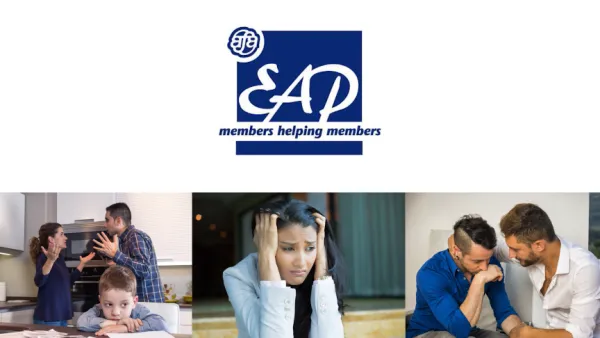EAP Committee
If you need assistance, please contact one of your EAP Reps. below:
ORD/PHX
Elizabeth Bonner- ORD
503-528-6496
Maria Ito- PHX
951-970-2251
Brian Devich- ORD
814-341-4881
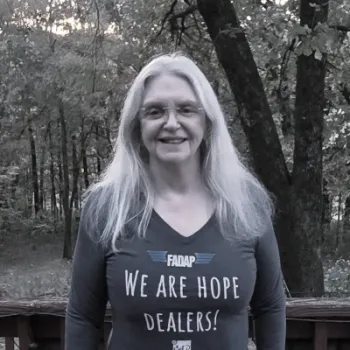 Elizabeth Bonner | 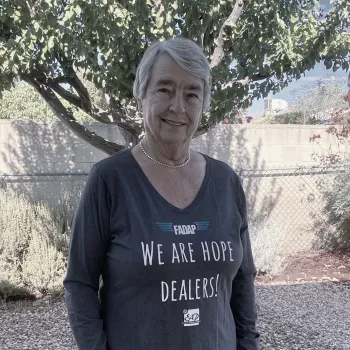 Maria Ito | 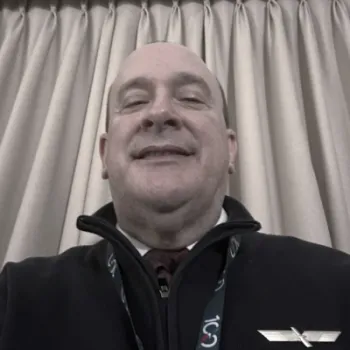 Brian Devich |
A personal note from your MEC EAP & LEC 51 ORD/PHX EAP Chair:
Greetings! Our EAP has three parts. One is Employee Assistance, under this part, we serve as a resource for resolving problems through an international network of over 200 professionally-trained, peer support, volunteer Flight Attendants overseen by mental health professionals.
Part two is Professional Standards (PS). We help with conflict resolution between flight crews, flight attendants and other co-workers.
Part three is Flight Attendant Drug and Alcohol Program (FADAP). We help with substance abuse for yourself and your family. All of our services are confidential and free.
Maria Ito and I are your ORD/PHX LEC EAP team.
We are dedicated and caring representatives. Whatever your concern, we can help. Please reach out to us in your time of need, whether it is a simple question or a complicated issue. Nothing is too small or too large for us to help. If we can't help you, we will find someone who can.
DFW
 Julian Robinson |
Hello, I’m Julian Robinson, LEC 52 DFW EAP Chair.
I am here to aid and support you in every possible way with any situation that may arise. At times, this may include directing you to another committee better suited to address your specific concern. Please know this is never a brush-off, it’s about ensuring you receive the most accurate and effective assistance possible. I take pride in my training and experience, and if I don’t have the answer, I will do my best to connect you with the person who does.
Please be aware that in some rare cases, we may not have been informed of your emergency situation, so if you don’t hear from us please give us a call.
MIA
 Missy Schaffstall |
My name is Missy, and I’m honored to introduce myself as your new EAP Professional Standards Chairperson.
I’m an active flight attendant, and I’ve been proud to fly with Envoy for more than 10 years, during which I’ve been based in Chicago, Dallas, and now Miami.
My journey with EAP began over eight years ago, and it has been a privilege to support and advocate for our flight attendants throughout that time. As your Professional Standards Rep., my goal is to provide a confidential and supportive resource to help resolve workplace conflicts, promote mutual respect, and maintain the professionalism that defines our crew community.
I look forward to working with each of you and continuing to build a positive and respectful environment for all. Please don’t hesitate to reach out if you ever need assistance or just want to connect.
We could all benefit from reliable support through an Employee Assistance Program (EAP).
Relationship issues, family concerns, emotional well-being, physical health concerns, stress, substance abuse, other addictions, financial difficulties, legal matters, and personal and work problems. As aviation's first responders, flight attendants prepare for and coordinate responses to emergency situations for carriers and the traveling public daily.
Our EAP representatives can help you:
- Understand the dynamics and impact of a critical incident or traumatic event.
- Recognize the normal signs and course of post-incident stress.
- Identify strategies for managing and alleviating these symptoms.
- Recognize when your recovery is getting stuck
- Access professional resources when needed
- Problems occur among coworkers
- However, there is an alternative to making a report to management if you have a conflict with, or a concern about a flying partner.
Talk it out! Don't write it up!
Have you ever wondered, What is Professional Standards and why should I use it?
Professional Standards offers a way for disagreements, frustrations with other crew members (pilots, flight attendants, etc.), personality conflicts, and other unpleasant issues to be worked out without management being involved. That way no one gets in trouble.
When you contact Professional Standards, the following happens:
- We listen to your complaint.
- We offer you a way to work out the problem yourself, offer to contact the other co-worker involved and help you deal with your frustration.
- If we contact the other co-worker, we explain there was a complaint about them. We listen to their side of the story. We, then, give them ways to prevent company discipline, go over procedures and assure them that they are not being disciplined.
- We encourage everyone to be professional. Being professional, being kind and working together helps stop unpleasant problems from happening in the first place.
What we DO NOT do:
We do not take sides. We were not there, we saw nothing. We simply pass on the information and offer solutions. We do not call back and forth with, “he said, she said,” information. That would make us gossips.
We do not share the professional standard issues with anyone without permission. Professional Standards is confidential, the same as Employee Assistance cases. Your identity is safe with us.
If you are experiencing difficulties with a co-worker and are unable to work out the problem, please, contact us. We are here to help, 24/7, 365.
Talk it out, don't write it up.
Tips on Addressing Concerns:
- Approach your coworker out of the view and earshot of passengers. Consider waiting until after you are off the airplane.
- Speak in a calm, non-threatening manner.
- Discuss the specific behavior or area of disagreement and how it is impacting you.
- Find an acceptable solution that includes a commitment to professional behavior on future flights.

What is FADAP?
FADAP is a substance-abuse prevention program, created and promoted for and by the flight attendant profession and funded by the FAA. Throughout this site you will find stigma free information on substance use, abuse and dependence.
Mission
FADAP's mission is to support a culture of safety which will be able to assist flight attendants in meeting their personal and professional goals through substance-abuse awareness, combined with self and peer referrals for assistance, and the implementation of a flight-attendant-specific recovery support system.
The advancement of the Flight Attendant Drug and Alcohol Program has been endorsed by your flight attendant peers and managers from 25 carriers during a March 2009 "Return to the Cabin" Summit.
The Flight Attendant Drug and Alcohol Program began September 2010 with funding from the FAA.
The following statement of values under which FADAP operates was created by the FADAP Advisory Board (January 2011).
Value Statement
- Substance Use Disorders are preventable and treatable chronic illnesses
- Left unaddressed, we all pay the price in numerous ways
- FADAP is dedicated to preventing and reclaiming personal and economic loss
Recovery is not a hard landing, it's a journey.
Critical Incident
AFA EAP representatives are available for you after an incident or accident. These trained representatives offer confidential education, referrals, and intervention services to help members cope with unsettling events both on and off the airplane. All information shared with AFA EAP is treated confidentially, similar to how health professionals handle sensitive data. AFA EAP discussions are kept separate from any company or FAA operational and investigatory proceedings.
- If you are involved in an aviation incident that you believe has overwhelmed your ability to continue to perform your safety-sensitive functions, contact your Flight Service Manager or Crew Scheduling immediately and ask to be removed from your flight.
If you had a Critical Incident, learn more about your options; click here.
Terrorism and threats are designed to cause fear and disruption, and it's normal to feel anxious, sad, or angry. People react differently, and some may struggle more due to varying tolerance levels for distress. To cope, the National Mental Health Association recommends taking breaks from news coverage, maintaining daily routines and social connections for stability, and having an emergency plan in place for a sense of control. If you're struggling to manage emotions, seek professional help, with AFA EAP offering support and referrals if needed.
DEA & Substances Awareness
DEA launched "One pill Can kill" campaign
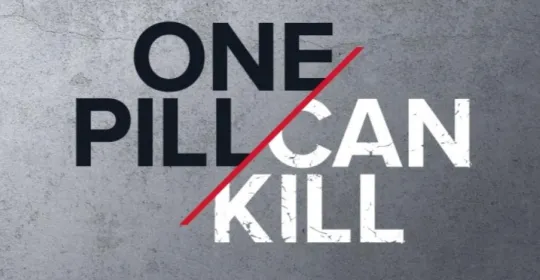
"DEA has issued a public safety alert to warn Americans of the alarming increase in the lethality and availability of fake pills containing fentanyl and methamphetamine. Criminal drug networks are mass-producing counterfeit pills and falsely marketing them as legitimate prescriptions in an effort to deceive the American public."
Protect Yourself
Going out for a drink? Always watch your own drink, only accept drinks directly from the bartender, and never leave your drink unattended. Unless you know the person, don't accept open container drinks. If you suspect you've been drugged or assaulted, get medical assistance right away and preserve evidence.
Your AFA EAP is available to provide peer support and assistance around all forms of victimization.

